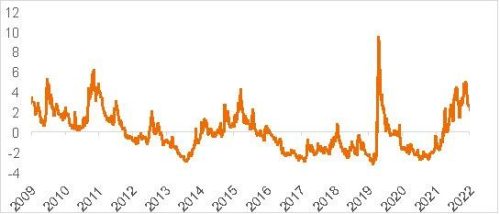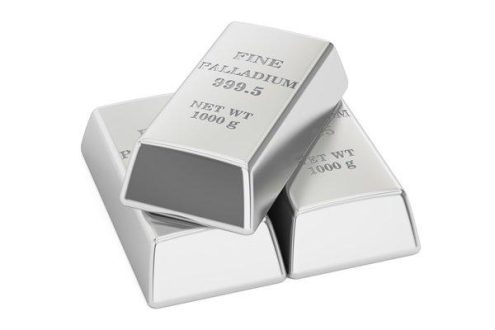Mawson update on the Redcastle epizonal gold project, Victoria, Australia
Work at Redcastle during the 70% earn-in period has been undertaken by Mawson Victoria Pty Ltd (“Mawson Victoria”). Mawson Victoria was recently transferred from Mawson Gold Ltd to Southern Cross Gold Pty Ltd (“Southern Cross”) as part of a larger internal reorganization. Southern Cross holds three historic epizonal gold fields (Sunday Creek, Whroo and Redcastle) and is working towards a proposed initial public offering (“IPO”) on the Australian Securities Exchange (“ASX”). As at the date of this news release, Mawson holds 84.62% of Southern Cross’ issued shares after recently raising A$2.725 million privately into Southern Cross to fund ongoing exploration and IPO costs.
Highlights:
➢ Mawson Victoria has explored below historic mines with deep drilling and modern exploration techniques, with highlights from a 16-hole diamond drill program including:
o 0.5 metres @ 9.1 g/t Au from 76.3 metres in hole MDDRE010 from the Mullocky prospect;
o 0.1 metres @ 7.2 g/t Au from 148.2 metres in hole MDDRE008 from the Clarke’s prospect;
o 0.3 metres @ 4.2 g/t Au and 1.2% Sb from 52.7 metres in hole MDDRE009a from the Redcastle North prospect.
➢ 1-km-long 3D induced polarization anomaly (“3DIP”) defined under the Welcome Group of mines where 8,669.5 tonnes at 103.6 g/t Au for 28,850 oz were produced from 19th century mines.
➢ Sampled 73 g/t Au/3,500 ppm Sb, 0.2 g/t Au/26 ppm Sb and 5.0 g/t Au/3,200 ppm Sb from rock chips at Black Squall coincident with a 750 metre x 500 metre Sb soil anomaly.
➢ Six drill ready targets: the Welcome Group of Mines, Clarke’s Mine, Redcastle North, Mullocky, Beautiful Venus and Mitchell’s Dam.
➢ Seventeen kilometres of mineralized structures with historic mining, along strike from Costerfield, remain to be tested (Figure 3).
➢ Mawson Victoria Earning in 70%, having provided notice of achieving its earn-in commitment (>A$1m expenditure)
Michael Hudson, Executive Chairman of Mawson and Managing Director for Southern Cross, states: ”Redcastle is one of those uniquely Victorian opportunities where significant historically mined epizonal gold systems remain poorly explored to depth. Despite being immediately along strike from the 2 million ounces of equivalent gold Costerfield mine corridor (pers. comm. Mandalay Q3 2021 Results), the property has previously only seen 40 m average depth for drilling, and never a test below historic workings that extend over tens of kilometres. Our 16 holes have now more than quadrupled the search space, with almost every hole intersecting gold at depth. Furthermore, across the property we have a 1 km geophysical target, a large antimony soil anomaly with a 73 g/t gold grab sample, and 17 km of structures that remain untested. With Mawson Victoria notifying our JV partners of achieving our 70% earn-in and with six fully permitted, walk-up drill targets, Redcastle remains a priority project.”
Mawson Victoria’s exploration strategy at Redcastle during the 70% earn-in period has focused on searching for high-grade epizonal gold at depth beneath historic mines. The approach was to compile all historical mining and exploration data into a 3D model and apply large scale geophysical and remote sensing methods to identify mineral systems below 50 metres depth, followed by oriented diamond drilling to test targets.
Mawson Victoria has drilled 16 drillholes for 2,786.9 metres across total of eight prospects at Redcastle (for an average hole depth of 174.2 metres). Thin to moderate grades and widths of gold were discovered in all drill holes, except those that hit historic mine workings. Many targets require follow-up drilling. A chronological summary of Mawson Victoria’s drill program on each of the prospects comprising Redcastle follows.
Why Not Prospect: Two drillholes (MDDRE001 and MDDRE002) under shallow historic workings with better results of 0.3 metres @ 1.4 g/t Au from 61.3 metres and 0.4 metres @ 1.6 g/t Au from 92.6 metres in hole MDDRE001. No immediate follow up is warranted.
Pioneer Prospect: Two drillholes (MDDRE003 and MDDRE004) under shallow historic workings with better results of 0.1 metres @ 4.4 g/t Au from 55.7 metres in hole MDDRE003 and 0.4 metres @ 2.2 g/t Au from 40.2 metres in hole MDDRE004. No immediate follow up is warranted.
Mitchell’s Prospect: Two drillholes (MDDRE005 and MDDRE006) into a mineralized dioritic dyke with better results of 0.2 metres @ 1.6 g/t Au from 73.2 metres within a wider lower grade zone (no lower cut) of 13.3 metres @ 0.3 g/t Au from 72.8 metres in hole MDDRE005. An additional arsenic-rich mineralized dyke was found in the same hole with a wide lower grade zone (no lower cut) assaying 9.4 metres @ 0.2 g/t Au from 100.9 metres. The second hole at Mitchell’s also had a wide lower grade dyke intersected (no lower cut) of 10.0 metres @ 0.4 g/t Au from 50.0 metres. Further analysis is required to determine if the dyke-hosted mineralization, which is interpreted to have been the source for the initial rich alluvial gold rush into Staffordshire Flats in 1859, hosted potential ore-grade mineralization below the base of weathering.
Clarke’s Mine: Two drillholes were drilled at Clarke’s mine (MDDRE007, MDDRE008) below historic workings. Interpretation of structures in drillholes MDDRE007 and MDDRE008 revealed that MDDRE007 had drilled parallel to the Clarke’s Lode and had failed to intersect it at depth. MDDRE008 intersected the mineralized lode structure (returning 0.1 m at 7.2 g/t Au from 148.2 metres) below an east-dipping structure recorded in mine reports and intersected in MDDRE008 and MDDRE007. These reports suggest that the main lode was enriched above the east-dipping structure. The intersection of the mineralized structure and the east-dipping structure has a shallow plunge to the north, which has not been tested by drilling. Follow-up drilling is planned.
Redcastle North Prospect: Two twinned holes (MDDRE009/9a), were drilled at Redcastle North (MDDRE009 was redrilled as MDDRE009a due to poor core recovery). The target was the extension of the highest-grade historic drill hole assay in the Redcastle database being 1 metre @ 16.7 g/t Au in RRC41. MDDRE009a intersected 0.3 metres @ 4.2 g/t Au and 1.2% Sb from 52.7 metres and 0.7 metres @ 1.9 g/t Au from 62.3 metres. Although the intersection is thin, structural readings show that the intersection lies within a north-striking axial surface of the north-plunging anticline, untested to depth and further drilling is warranted.
Mullocky Prospect: Two holes (MDDRE010 and MDDRE011) were drilled at Mullocky where interpretation of the structural data in drilling shows mineralization is hosted by faults on the eastern shoulder of a north-plunging anticline. Historic holes in the area returned elevated gold and these intercepts, as well as 1.2 metres @ 4.3 g/t Au from 75.7 metres including 0.5 metres @ 9.1 g/t Au from 76.3 metres in hole MDDRE010. All these intercepts are located on the eastern shoulder of an anticline. The northerly plunge of the structure remains untested at depth and further drilling is warranted.
Welcome Prospect: Two drillholes (MDDRE012 and MDDRE013) under shallow historic workings that extend for 600m strike. Better results included 0.4 metres @ 2.1 g/t Au from 121.9 metres from MDDRE012. No immediate follow-up is warranted.
Beautiful Venus Prospect: One drill hole, MDDRE014 was drilled to target mineralization below the historic working at Beautiful Venus. Unfortunately, the drillhole intersected historic workings that were mined deeper than predicted. The project remains untested and warrants further drilling.
Welcome Group Prospect: One drillhole, MDDRE015, was at the Welcome Group targeting a 1 km-long coherent induced polarization (“IP”) chargeability anomaly generated by Mawson Victoria’s 3D offset array IP geophysical survey that coincides with the Welcome Group of mines (of which Clarke’s was one mine in that cluster). This is considered highly prospective as there are at least 9 mined structures above the geophysical anomaly where the Welcome Group of mines reported to have extracted 20,583 oz at 254.6 g/t Au over 2 km strike length down to a maximum depth of 125 metres (in the period 1859 to 1865). Drillhole MDDRE015 did not intersect the mineralized lode and nor did it explain the IP anomaly leaving an opportunity to target the IP anomaly from the opposite direction over the majority of the 1 km strike. Further drilling is planned.
Interpretation of historic soil sampling data at the Black Squall project revealed a large number of soil samples collected in the early 1970s were not assayed for gold but were highly anomalous in antimony. These samples occur at the intersection of an anticlinal hinge and a NE-trending structure identified in the LiDAR interpretation (Figure 3). To validate the anomaly, three orientation soil and three orientation rock chip samples were collected from the area. Two of the soil samples were highly anomalous in gold and antimony (0.36 g/t Au/63 ppm Sb and 0.19 g/t Au/34 ppm Sb), and float from nearby hard rock workings was also anomalous in both gold and antimony (73 g/t Au/3,500 ppm Sb, 0.2 g/t Au/26 ppm Sb and 5.0 g/t Au/3,200 ppm Sb). These results indicate that the Black Squall area forms an immediate follow up for further soil sampling and drilling.
Mawson Victoria has also conducted a variety of geophysical and remote sensing surveys:
• Ground magnetics (5.6 sq. km) over the southern part of the permit area collected continuously along 50 metre spaced east-west oriented lines;
• High density ground gravity (23 sq. km) survey over the central permit area on 200 metre spaced east-west oriented lines with stations spaced at 100 metres.
• Induced polarization (“IP”) surveys:
o A 22 sq. km gradient array induced polarization survey collected over 32 gradient blocks each 800 metres x 800 metres optimised around 32 channel receivers, with 25 metre station spacing and 100 metre east-west line spacing was undertaken to map geology and mineralizing structure.
o 1.7 sq. km offset dipole-dipole induced polarization over the Welcome Group area following up a gradient array IP chargeability anomaly.
A 58 sq. km LiDAR survey flown and was used to map geology and target old workings, with over 40,000 hard rock and alluvial working being identified using machine learning from the survey from the Redcastle tenement area. An Optech Galaxy sensor was employed to gather the data from 950 metre elevation, delivering swath widths of 580 metres. The laser pulse rate was of the order of 500 kHz. The quality of the ground return data was high with ground return averaging 12-15 points per metre and as a result, the LiDAR images enabled location of unknown old workings and interpretation of rock types, bedding and structures.
Mandalay Resources’ Costerfield mine and exploration leases are located 2km south of Mawson Victoria’ Redcastle EL5546. Costerfield is the target model sought at Redcastle. The Costerfield mine corridor contains 2 million ounces of equivalent gold (pers. comm. Mandalay Q3 2021 Results), and in 2020 was the sixth highest-grade global underground mine and a top 5 global producer of antimony. Average drill hole widths and grades at Costerfield are: Brunswick lode (0.7m @ 9.0 g/t Au and 4.0% Sb), Youle lode (0.4 metres @ 47.7 g/t Au and 11.4% Sb), Kendal Splay (0.3 m @ 92.8 g/t Au and 41.3% Sb) and Peacock lode (0.4m @ 13.0 g/t Au and 6.0% Sb). The average vein width at Augusta is 0.3 m, while the Cuffley lode averaged 0.4 m. Average mined widths at Costerfield are 2.0 metres (Mandalay Technical Report, 2021).
Mawson Victoria, Southern Cross Gold and Nagambie Resources
All work at Redcastle over the last 18 months has been undertaken by Mawson Victoria. Mawson Victoria was recently transferred from Mawson Gold Ltd to Southern Cross as part of a larger internal reorganization. Southern Cross is working towards a proposed IPO on the ASX. Mawson currently holds 93,750,000 ordinary shares of Southern Cross or 84.62% of Southern Cross’ issued shares after recently raising A$2.725 million privately into Southern Cross to fund ongoing exploration and IPO costs.
Mawson Victoria is party to an Option and Joint Venture Agreement with Nagambie Resources Limited (“Nagambie”) for the Redcastle JV tenements. Mawson Victoria has an option over 70% of the Redcastle properties subject to undertaking A$1 million exploration by March 25, 2025, following which a joint venture between the parties will be formed. Nagambie may then contribute its 30% share of further exploration expenditures or, if it chooses to not contribute, dilute its interest. Should Nagambie’s interest be reduced to less than 5.0%, it will be deemed to have forfeited its interest in the joint venture to Mawson Victoria in exchange for a 1.5% net smelter return royalty (“NSR”) on gold revenue. Should Nagambie be granted the NSR, Mawson Victoria will have the right to acquire the NSR for A$4,000,000.
As of the date of this news release, Mawson Victoria has formally earnt 50% and has also provided Nagambie notice of achieving its 70% earn in and the companies will proceed to form a joint venture.
Technical and Environmental Background: Tables 1–3 provide collar and assay data. The true thickness of the mineralized interval is interpreted to be approximately 60% of the sampled thickness. All drill results quoted have a lower cut of 0.3 g/t Au cut over a 1.0 metre width, with higher grades reported with a 5 g/t Au cut over 1.0 metre applied unless otherwise stated. Lab duplicates demonstrate that mineralization is homogenous with a low nugget effect evident. A diamond drill rig from contractor Starwest Pty Ltd was used in the program. Core diameter is HQ (63.5 mm) and oriented with excellent core recoveries averaging close to 100% in both oxidized and fresh rock. After photographing and logging in Mawson Victoria’s core logging facilities in Nagambie, intervals were diamond sawn in half by Mawson Victoria personnel. Half core is retained for verification and reference purposes. Analytical samples are transported to the Bendigo facility of On Site Laboratory Services (“On Site”) which operates under both an ISO 9001 and NATA quality systems. Samples were prepared and analyzed for gold using the fire assay technique (PE01S method; 25 gram charge), followed by measuring the gold in solution with flame AAS equipment. Samples for multi-element analysis (BM011 and over-range methods as required) use aqua regia digestion and ICP-MS analysis. The QA/QC program of Mawson Victoria consists of the systematic insertion of certified standards of known gold content and blanks within interpreted mineralized rock. In addition, On Site inserts blanks and standards into the analytical process.
Qualified Person: Michael Hudson (FAusMM), Executive Chairman and a director of Mawson and Managing Director of Southern Cross, is a qualified person as defined by National Instrument 43-101 – Standards of Disclosure or Mineral Projects and has prepared or reviewed the preparation of the scientific and technical information in this press release.
About Mawson Gold Limited (TSX:MAW, FRANKFURT:MXR, OTCPINK:MWSNF)
Mawson Gold Limited is an exploration and development company. Mawson has distinguished itself as a leading Nordic Arctic exploration company with a focus on the flagship Rajapalot gold-cobalt project in Finland and is well placed to add to its already significant gold-cobalt resource there. Through its 84.62% ownership of Southern Cross Gold Pty Ltd, Mawson has a significant interest in the ownership or JVs of three high-grade, historic epizonal goldfields covering 471 sq km in Victoria, Australia.
"Michael Hudson"
Michael Hudson, Executive Chairman
Further Information
www.mawsongold.com1305 – 1090 West Georgia St., Vancouver, BC, V6E 3V7
Mariana Bermudez (Canada), Corporate Secretary, +1 (604) 685 9316, info@mawsongold.com
In Europe:
Swiss Resource Capital AG
Jochen Staiger
info@resource-capital.ch
www.resource-capital.ch
Forward-Looking Statement
This news release contains forward-looking statements or forward-looking information within the meaning of applicable securities laws (collectively, "forward-looking statements"). All statements herein, other than statements of historical fact, are forward-looking statements. Although Mawson believes that such statements are reasonable, it can give no assurance that such expectations will prove to be correct. Forward-looking statements are typically identified by words such as: believe, expect, anticipate, intend, estimate, postulate, and similar expressions, or are those, which, by their nature, refer to future events. Mawson cautions investors that any forward-looking statements are not guarantees of future results or performance, and that actual results may differ materially from those in forward-looking statements as a result of various factors, including, but not limited to, timing and successful completion of exploration and drill programs planned, IPO and listing of Southern Cross Gold’s common shares on ASX, capital and other costs varying significantly from estimates, changes in world metal markets, changes in equity markets, the potential impact of epidemics, pandemics or other public health crises, including the current pandemic known as COVID-19 on the Company’s business, risks related to negative publicity with respect to the Company or the mining industry in general; planned drill programs and results varying from expectations, delays in obtaining results, equipment failure, unexpected geological conditions, local community relations, dealings with non-governmental organizations, delays in operations due to permit grants, environmental and safety risks, and other risks and uncertainties disclosed under the heading "Risk Factors" in Mawson’s most recent Annual Information Form filed on www.sedar.com. Any forward-looking statement speaks only as of the date on which it is made and, except as may be required by applicable securities laws, Mawson disclaims any intent or obligation to update any forward-looking statement, whether as a result of new information, future events or results or otherwise.
Swiss Resource Capital AG
Poststrasse 1
CH9100 Herisau
Telefon: +41 (71) 354-8501
Telefax: +41 (71) 560-4271
http://www.resource-capital.ch
CEO
Telefon: +41 (71) 3548501
E-Mail: js@resource-capital.ch
![]()



